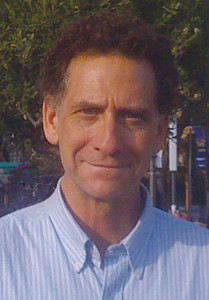This Christmas, the Church will also be celebrating during the special “Holy Year of Mercy” called by Pope Francis. What does mercy mean to this Pope? A great deal, for he experienced mercy himself, and it changed him forever…
“When I see the sick, the elderly, a caress comes spontaneously to me. A caress is… the first gesture that a mother or father does with the newborn child, the gesture of ‘I wish you well,’ ‘I love you, ‘I want you to get ahead.’” —Pope Francis, in a recent interview with Credere, a Catholic weekly and official Jubilee publication

Robert Moynihan
In 1953, on the Feast of St. Matthew, September 21, the young Jorge Bergoglio (Pope Francis), in his 17th year, experienced, in a very special and intimate way, the loving presence of God in his life. He went to confession and felt his heart touched by the mercy of God. It changed his life. In memory of that holy event, Pope Francis chose as his episcopal (and later papal) motto the words “miserando atque eligendo” (“having mercy and choosing”).
“In that confession, something very rare happened to me,” Pope Francis once said. “I don’t know what it was, but it changed my life. I would say that I was caught with my guard down… It was a surprise, the astonishment of an encounter. I realized that God was waiting for me. From that moment, for me, God has been the one who precedes (to guide me)… We want to meet Him, but He meets us first… He came to meet me and invited me to follow Him.”
The Holy Father has proclaimed a Holy Year, the Jubilee Year of Mercy, that will begin on December 8. He is calling us to a renewed personal encounter with Jesus and to proclaim, celebrate, and live the Gospel of Mercy.
Recently, the Pope granted an interview to an Italian Catholic weekly magazine, Credere. Here are some excerpts from the interview, published by the Zenit news agency.
Holy Father, we are about to begin the Jubilee. What movement of the heart drove you to highlight precisely the subject of mercy? What urgency do you perceive in this regard?
Pope Francis: The theme of mercy has been strongly accentuated in the life of the Church, since Pope Paul VI. John Paul II stressed it strongly with Dives in Misericordia, the canonization of St. Faustina, and the institution of the Feast of Divine Mercy on the Octave of Easter. In line with this, I felt that it is somewhat a desire of the Lord to show His mercy to humanity. Therefore, it didn’t come to my mind, but rather the relatively recent renewal of a tradition that has, however, always existed.
My first Angelus as Pope was on God’s mercy… It’s obvious that today’s world is in need of mercy, it is in need of compassion… We are used to bad news, to cruel news and to the greatest atrocities that offend the name and life of God. The world is in need of discovering that God is Father, that there is mercy, that cruelty isn’t the way, that condemnation isn’t the way, because the Church herself sometimes follows a hard line, she falls into the temptation of following a hard line, into the temptation of stressing only the moral rules; many people are excluded.
There came to my mind that image of the Church as a field hospital after a battle; it’s true, how many people are wounded and destroyed! The wounded are taken care of, helped and healed, not subjected to analyses for cholesterol. I believe this is the moment of mercy. We are all sinners, we all bear interior burdens. I felt that Jesus wishes to open the door of His heart, that the Father wishes to show His deepest mercy, and therefore sends us the Spirit: to move us and to deter us. It is the year of forgiveness, the year of reconciliation.
On one hand we see the arms trade, the production of arms that kill, the murder of innocents in the most cruel possible way, the exploitation of persons, minors, children: a sacrilege — permit me the term — is being carried out against humanity, because man is sacred, he is the image of the living God. See, the Father says: “Stop and come to me.” This is what I see in the world.
You have said that, as all believers, you feel yourself a sinner, in need of God’s mercy. In your journey as priest and bishop, what importance has divine mercy had? Do you remember, in particular, a moment in which you felt in a transparent way, the merciful look of the Lord on your life?
Pope Francis: I am a sinner, I feel myself a sinner, I’m sure of being so. I am a sinner upon whom the Lord has looked with mercy. I am, as I said to prisoners in Bolivia, a forgiven man. I am a forgiven man. God has looked upon me with mercy and He has forgiven me. Even now I commit errors and sins, and I go to Confession every 15 to 20 days. And if I go to Confession, it’s because I am in need of feeling that God’s mercy is again upon me.
I remember — I have already said this many times — when the Lord looked upon me with mercy. I’ve always had the sensation that He took care of me in a special way, but the most significant moment was verified on September 21, 1953, when I was 17. It was the day of the … student in Argentina, and I would have spent it with the other students. I was a practicing Catholic, I went to Mass on Sundays, but no more… I was in Catholic Action but I didn’t do anything; I was only a practicing Catholic. Along the way to the train station of Flores, I passed close to the parish I frequented and I felt compelled to enter. I went in and saw a priest coming down one side, whom I didn’t know. I don’t know what happened to me at that moment, but I realized my need to go to Confession, in the first confessional on the left — many people went to pray there. And I don’t know what happened, but I came out different, changed. I returned home with the certainty of having to consecrate myself to the Lord, and this priest accompanied me for almost a year. He was a priest from Corrientes, Father Carlos Benito Duarte Ibarra, who lived in the clergy’s house in Flores. He had leukemia and was being taken care of in the hospital. He died the following year. After the funeral I wept bitterly; I felt totally lost, as if the fear of God had abandoned me.
This was the moment I met with God’s mercy.
John XXIII’s “address to the moon” is famous when, one evening, he greeted the faithful saying: “Give a caress to your children.” That image became an icon of the Church of tenderness. In what way will the subject of mercy be able to help our Christian communities be converted and renewed?
Pope Francis: When I see the sick, the elderly, a caress comes spontaneously to me. A caress is a gesture that can be interpreted ambiguously, but the first gesture that a mother or father does with the newborn child, is the gesture of “I wish you well,” “I love you.”



Facebook Comments